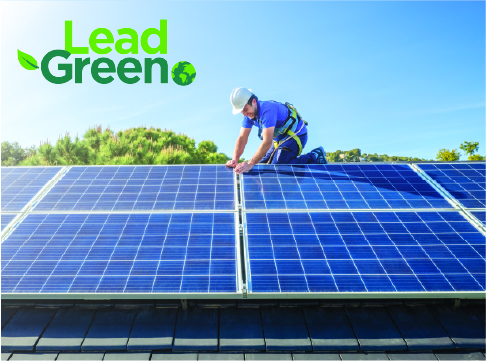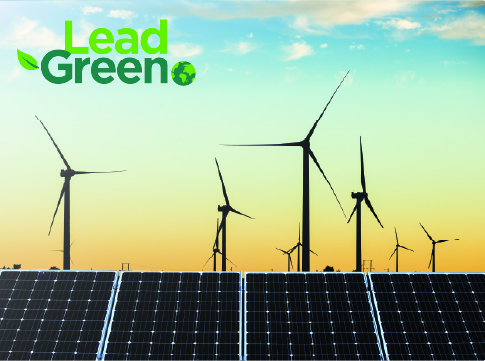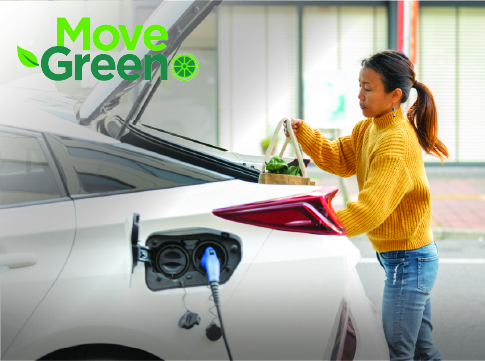Questions?
Send us an email or call 541-685-7088
Depending on your circumstances, installing a solar array at your home may be a good opportunity to consider. An optimally installed system in Eugene will generate approximately 1,100 kilowatt-hours of zero-emissions energy per year for each kilowatt of installed capacity.
When paired with a home battery storage system, a solar system can provide you with a temporary backup source of power in the event of a power outage.
Please be advised that the 2025 Solar PV Program incentive budget has been fully allocated and no further EWEB incentives are available for this year.
Is solar right for me?
As an EWEB customer, you’re already using clean, renewable energy and investing in McKenzie Watershed protection. But together we can do more. Solar panels can supplement the clean, reliable electricity you get from EWEB. But depending on your goals, solar may not be the most effective solution. Before you make a decision on whether rooftop solar is a practical idea for your home, consider the following:
- Does your site have good solar exposure? About 250 square feet of un-shaded roof space facing south, southeast, or southwest is a great start, though not always required.
- How much electricity do you use in a year? Review your EWEB bills, keeping in mind that energy use can vary dramatically from winter to summer.
- What are your financial goals? Do you have a fixed budget? Are you considering financing options, or do you have a certain payback period in mind? Additionally, there may be other more cost-effective ways to lower your electric bill, including energy efficiency measures. Explore EWEB’s residential energy efficiency programs.
- Use independent third-party tools such as https://pvwatts.nrel.gov/ or WattPlan to estimate the amount of solar energy you can anticipate producing at your home.
- The excess generation produced by your panels are calculated and trued-up on a monthly basis and does not roll over to subsequent months.
- All solar electric system installations must go through the EWEB Solar Electric Program independent of incentive qualification.
- The maximum net meter system size is 25 kW AC output.
- If a solar system is paired with batteries, there should be no instance where the battery is able to dispatch onto EWEB's electrical distribution system.
- Average residential solar system costs in 2023 were $4.81 per watt with an average system size of 7.9 kW. Average residential solar system costs in 2024 were $4.69 per watt with an average system size of 7.7 kW. Please note that some of these installations included paired battery systems, so the costs are not fully representative of stand-alone solar system installations. The cost and system size are based on AC output watt.
- For questions, email or call the EWEB Solar Team at 541-685-7088 before you sign a contract with an installer.
As your energy partner, we're committed to providing you the information and guidance you need to make an informed solar decision. Complete the Residential Solar Calculator to generate an estimate of your solar generation potential, ongoing utility costs and estimated payback period for a rooftop solar system at your home. You can also read our Solar FAQs, and reach out to our energy experts to learn more.
Residential Solar CalculatorResidential Solar PV Program Changes
Sice 2023, EWEB has implemented the following changes to the Residential Solar PV program:
- To qualify for an EWEB incentive, solar installations must be performed by a solar contractor appearing in the Oregon Department of Energy's Oregon Solar + Storage Rebate Program list or approved contractors. For questions regarding this list, including contractor participation, please contact the State of Oregon and/or your contractor.
- Customers will be required to obtain and submit at least two solar system bids as an initial step to begin any residential solar project. Bids are to be requested and provided by the customer from a State-approved contractor.
- EWEB’s Power Purchase Agreement (PPA) will not be available on EWEB’s website. Customers must go through the application process to receive a PPA with a unique EWEB Project ID for the specific project.
Solar generation rates
The following net metered and direct generation rates are effective February 2025.
For net metering, excess energy generated by solar customers that exceeds their own consumption will be credited to their bill at the 2025 Annual Renewable Net-Metered Rate of $0.0710 per kWh (down from $0.1045 in 2024).
For direct generation, energy generated and sold directly to EWEB will be purchased at the 2025 Annual Renewable Generation Purchase Rate (Purchased Power and RECs) of $0.0768 per kWh (down from $0.1102 in 2024).
Beginning in 2026, EWEB will transition to a new method of calculating solar rates based on avoided cost, ensuring that solar compensation reflects the financial benefits of local renewable energy to the utility and its customers.
Learn moreSelecting a contractor
EWEB encourages you to work with a solar contractor appearing on the Oregon Department of Energy’s Oregon Solar + Storage Rebate Program list of approved contractors. This is a requirement for solar projects wanting to take advantage of an EWEB incentive. For questions regarding this list, including contractor participation, please contact the State of Oregon and/or your contractor.
Additionally, working with a contractor appearing on the Oregon Department of Energy’s Oregon Solar + Storage Rebate Program list allows your project to be eligible to apply for state rebates of up to $5,000 for a solar electric system, and up to $2,500 for an energy storage system. Contractors on this list must meet the Oregon Department of Energy eligibility requirements, including:
- Holding and maintaining any license, bond, insurance, or permit required to construct or install a solar electric system or a paired solar and storage system.
- Holding or employing an individual holding, the PV Installation Professional (PVIP) certification administered by the North American Board of Certified Energy Practitioners (NABCEP), or the contractor employs both a PV Installer Specialist (PVIS) certified by NABCEP and a person with the NABCEP PV Technical Sales (PVTS) certification.
When working with a solar contractor, we encourage you to clarify and understand:
-
- How much experience they have with solar installations?
- Will their company be preforming the installation, or will they be working with subcontractors?
- What kind of warranty do they offer?
- Do their employees hold a certification from North American Board of Certified Energy Practitioners (NABCEP)?
- Is your system being sized for a monthly true-up utility policy? EWEB does not have a yearly true-up policy and systems sized for a yearly true-up policy may be oversized in EWEB service territory.
- All contractors in Oregon are required to have a Construction Contractors Board (CCB), license. Prior to hiring a contractor, ask for their CCB license number and review their history at the Oregon Construction Contractors Board. You can also review Better Business Bureau reviews and request a reference list of past customers.
- Seek multiple comparing bids and ensure that the bids include similar components such as system size in watts (W) or kilowatts (kW) and include an estimate of the electricity the system will produce on a monthly and annual basis in kilowatt-hours (kWh). Bids should include all costs associated with the project, including equipment, hardware, labor, permitting, and warranty.
- When considering tax benefits for your project, consult with your tax professional to understand how and if these tax incentives may apply to you.
We offer these incentives
The residential incentive is $0.40/AC output watt, with a maximum incentive of $2,500, however, please be advised that as of 5/9/2025, the 2025 Solar PV Program incentive budget has been fully allocated and no further EWEB incentives are available for this year. Customers may choose to install regardless of available EWEB incentive budget and will need to follow the same process to apply for pre-approval.
EWEB solar incentives are reserved if a completed program application, Power Purchase Agreement (requesting and qualifying for an incentive) and all supporting documentation have been received by EWEB for review and approval.
Our solar PV incentives are funded by customers who voluntarily participate in our Greenpower program. Customers who wish to see continued or enhanced funding for solar incentives are encouraged to sign up for Greenpower for as little as $1.50 per month. Those who can afford more can invest more by matching up to 100 percent of their electricity consumption.
Some solar system installations may be eligible for federal tax credits and state rebates in addition to incentives provided by EWEB. For questions on how or if any tax credits may apply to you, please consult a licensed tax professional.

Incentive and interconnection eligibility
- Customers must obtain at least two bids as part of their application process.
- All PV modules, inverters, and battery energy storage systems must be listed and rated in the California Energy Commission’s Solar Equipment Lists.
- All interconnection equipment must meet EWEB’s published Interconnection Requirements (see ECA5A8000) and EWEB’s Customer Service Policies and Procedures (see Power Purchase Rate Schedules and Applicability pages 55 – 57).
- Installation must be performed by a solar contractor listed in the State of Oregon approved contractor list.
- Project must meet a minimum Total Solar Resource Factor (TSRF) of 85 percent (for incentive qualification only)
Get started
Follow these steps to get started on producing clean, renewable energy at your home:
Step One:
Apply online here. Once we receive and process your application, we will send you a confirmation email and you will be assigned a project manager to work with you. Applications should be completed by the customer or with the customer's information. Interactions will initially be with the customer.
If you prefer to mail in a paper project application, you can print one here. Paper applications can be mailed to:
EWEB Customer Solutions
4200 Roosevelt Blvd
Eugene, OR 97402
Applications can also be emailed to ems.answers@eweb.org.
Step Two:
Submit two bids from contractors on the State of Oregon approved contractor list to your assigned project manager. Bids can be from within the past 3 months from the application submittal date and/or within the application year. Bids are requested and provided by the customer. Your project manager will then provide you a Power Purchase Agreement for completion by you and your contractor.
Step Three:
Submit a completed Power Purchase Agreement (PPA), including all required supporting documentation. Installation can begin after receiving EWEB pre-approval of the PPA by your project manager. Failure to do so could prohibit interconnection in addition to disqualification from receiving an incentive if applicable.
Step Four:
After installation of the system and submittal of all required documentation, including passing of the appropriate City or County inspection, EWEB will install a new meter. After and upon approval from EWEB, the solar system may be energized. EWEB may verify the system for program compliance.
If applicable, the incentive payment will be mailed to either the participant or the contractor approximately four to six weeks from the date EWEB approves the installation.
Apply NowYou also might be interested in:
The Oregon Department of Energy website provides lists of incentives, laws, policies and other recources related to solar electric.
The U.S. Department of Energy website is a helpful resources if you are considering a home solar electric system.
Purchase Renewable Energy Certificates (RECs) by enrolling in Cleanpower and help displace dirty energy sources with wind, solar and other zero-emission energy sources.
Upgrading from gas vehicles to electric cars and bikes can reduce air pollution and create a better, cleaner environment. In addition to the cost savings you'll get from electric transportation, you may qualify for EWEB rebates and state and federal tax credits.
Help reduce your utility bill and lower your carbon footprint by living green. We offer rebates and loans for your home or rental property that can help offset the upfront cost to upgrade heating, cooling, water heating, windows and insulation.








